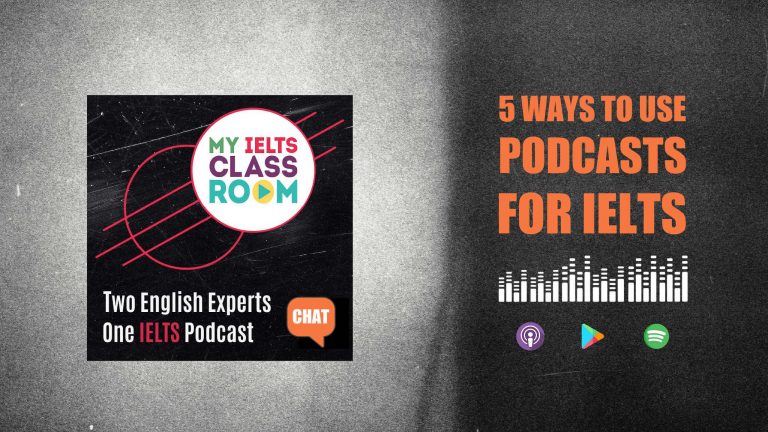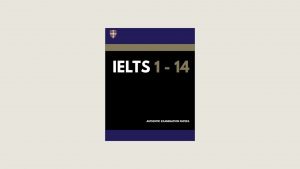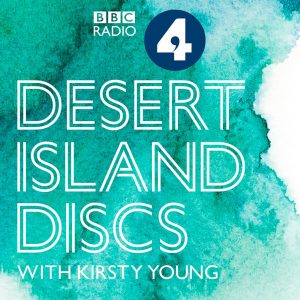
5 ways to use podcasts to study for IELTS
If you are a regular listener to the My IELTS Classroom Podcast, then I am sure that you are already convinced about the benefits of using podcasts in your IELTS preparation. However, although listening to a dedicated IELTS podcast like ours is a great way to train, there are thousands of other podcasts on topic like economics, science and social trends that you can use to improve your exam-day performance.
In today’s episode, I want to show you FIVE different ways that you can use podcasts to prepare for IELTS, and give you recommendations for specific episodes that I think are particularly useful to get you started. This is an INTERACTIVE lesson, so make sure that you have some pen and paper ready to participate!
Below, you can find a summary of the episode, which includes all of the links to useful materials and the times of each part of the discussion (so you can go directly to the part you want to listen to) 🚀
Subscribe to My IELTS Classroom podcast on Apple podcasts here
Subscribe to My IELTS Classroom on Google podcasts here
Podcast IELTS Summary: 5 ways to use podcasts to study for IELTS
00:00 – 07:21 – Introduction (Shelly went on an adventure to buy some headphones)
07:22 – 17:09 Use podcasts to generate ideas for your IELTS essay
I would say that this is hands down my number one use for podcasts. Give me any IELTS essay topic and I can give you a high-quality podcast episode that can give you DOZENS of ideas for how to approach it. Don’t believe me? Well, let’s start with these five:
1. In the future most work will be carried out by robots.
To what extent do you agree or disagree?
The topic of artificial intelligence and the impact that it has on our lives is one that IELTS is exploring more and more. In this episode of Fresh Air, Dave Davis interviews New York Times tech columnist Kevin Roose about his new book Futureproof: 9 Rules for Humans in the Age of Automation. In the interview, Roose explains many ways that artificial intelligence is shaping the way that we live and work. This is a GREAT episode for people, like me, who have no real idea about how “robots” will change our lives in the future. In particular, you can find some fantastic specific examples for your essays (i.e. NOT ones that talk about factories!

- Podcast Name: Fresh Air
- Episode: The Age Of Automation Is Now: Here’s How To ‘Futureproof’ Yourself
- Reason to listen: Find lots of clear examples about the impact of AI and automation
- Link: Click here
2. As well as making money, businesses also have social responsibilities.
To what extent do you agree or disagree?”
Obviously, this is a difficult question. The first thing that anybody would have to do to answer this is definite exactly what “social responsibilities” means. And, what is the best thing to do in the IELTS exam if you are looking for an argument? Turn to the environment! In recent months, several of the largest and most profitable American companies have introduced elaborate plans to combat climate change. So why are they doing it now? And just how meaningful are their plans? Listen to this episode to find out!

- Podcast Name: The Daily
- Episode: Can Corporations Stop Climate change?
- Reason to listen: Clear explanation of why companies are not trying to get involved in environmental issues (and Michael Barbaro’s strange intonation!)
- Link: Click here
3. Increasing the price of petrol is the best way to solve the growing traffic and pollution problems. To what extent do you agree or disagree? What other measures do you think might be effective?
We all know that IELTS loves the topic of the environment and, in particular, how to reduce climate change and air pollution. One common “solution” that students offer to this problem is to increase the use of public transport. 🌿
But, what exactly does this mean? How can governments really encourage people to take public transport? Can you tell me two or three simple changes that are actively proven to make people take buses instead of driving? 🚌 Maybe you can’t now, but you will after you listen to Missing the Bus, an episode from one of my favourite podcasts, 99% Invisible.

- Podcast Name: 99% Invisible
- Episode: Missing the Bus
Reason to listen: The more detailed your solution to a problem is in the exam, the higher your score for Task Response will be. - Link: Click here
4. Today many buildings such as offices and schools have an open-plan design (no walls between areas for different activities) instead of separate rooms. Why is this? Do you think this is a positive or negative development?
I worked in an open-plan office for a year and HATED it – even thinking about it now gives me shivers – so this would be a very easy topic for me to write about in the IELTS exam. However, not everybody has had the personal experience of working in an office like this, and this is not a topic that people think about without a reason! Enter Freakonomics to the rescue!
In this episode,Ethan Bernstein, associate professor of business administration at the Harvard Business School and Stephen Turban, a recent graduate of Harvard College, discuss the research that they have done into the effects of working in an open-plan office. What began as a post-war dream for a more collaborative and egalitarian workplace has evolved into a nightmare of noise and discomfort. Can the open office be saved, or should we all just be working from home? Listen to find out!

- Podcast Name: Freakonomics
- Episode:Yes, the open plan office is terrible – but it doesn’t have to be!
Reason to listen: Find out all of the positives and negatives of working in an open-plan office and some GREAT lexis! - Link: Click here
5. Some people believe that nowadays we have too many choices.
To what extent do you agree or disagree with this statement?
Aaaaagghhh – it is well known that this is the most difficult essay question in all 15 of the Cambridge IELTS books. If you want to know why this is so difficult, have a read of my blog post where I carefully explain what “too many choices” means (i.e. it is a BAD thing).

Then, listen to this fantastic podcast from Hidden Brain, which discusses exactly this topic! In fact, they agree with me that too much choice is a BAD thing. Trust me, you will not only be practicing your listening, but you will also have some FANTASTIC ideas in the horrible event that this question appears again 🏋️♀️

- Podcast Name: Hidden Brain
- Episode: The Choices Before Us: Can Fewer Options Lead To Better Decisions?
Reason to listen: Amazing arguments for the consequences of too many choices! - Link: Click here
17:09 – END Use podcasts to learn new vocabulary
Most English books try to recreate natural speech in their lessons so that students can hear lexis in context. I have always thought that this was a bit strange! I mean, why recreate a radio programmer or a conversation when you can just take one from real life! If you are looking for a way to learn new lexis in context, then there is really nothing better than a podcast! Sure, you may not understand every word, but that is fine! I think learning 5 words from one episode is more than enough!
Plus, usually the important words are repeated again and again, so you will start to recognise which are important. In our episode, we listen to a short clip from Helen Zaltzman’s “The Allusionist” podcast. The episode is all about how difficult it is to translate recipes into words and is a great way to learn food lexis. You can listen to the full episode here.

Use podcasts to improve your intonation
If you struggle with pronunciation, then the best way to improve your intonation is listening to natural speech. Although it may feel strange at first, pausing and repeating the sentences you have heard with the same intonation can really help you to sound more fluent when you speak. If you want to hear people speaking naturally, then listen to the Desert Island Discs podcast.
Each week, the presenter interviews a famous person to find out what eight records they would take to listen to if they were stuck on a desert island. The conversation isn’t really about music though – it is about what that music represents about the guest’s life. The show has been running for over 40 years, so there are literally thousands of episodes that you can listen to – I would recommend the ones with scientists, explorers, or a famous person that you know and love.

Use podcasts to improve your listening skills
Obviously, listening to ANY podcast will help with your listening. However, there are two particularly good podcasts for practising Parts 3 and 4 of the IELTS listening exam. For Part 3, when you have to listen to two or three speakers having a conversation, I recommend Radiolab. This is a podcast about science and it is widely recognised as one of the best podcasts in the world thanks to its high-quality production. The reason that it is so good is the two presenters often have different views on the weekly topic, so you can hear people negotiating, suggesting and disagreeing with one another naturally (as you also do in Part 3).
For Part 4, my recommendation has always been “In Our Time”. In each episode, the host Melvyn Bragg has a round-table discussion with three or four academics. Each programme covers a specific historical, philosophical, religious, cultural or scientific topic. I am going to be honest – this podcast can sometimes feel a bit boring. There are no sound effects, no jingles, and no attempts to make the topic “easier”. However, the conversations are extremely interesting and if you struggle in Listening Part 4 this is EXCELLENT practice as all of the topics are very “academic”.
Use podcasts for fun
As I said, listening to ANY podcast will improve your listening skills, vocabulary, and overall level of English. That means that listening to them should be a pleasure, not a chore! I listen to at least 10-hours of podcasts every week just because they help me to relax and I find them interesting. At the end of today’s episode, Nick and I recommend some podcasts that we listen to just for fun. Here they are:
- Reply All – The case of the Missing Hit
- This is Love – Something Large and Wild
- The Lex Friedman Podcast
- Making Sense with Sam Harris
- Uncommon Knowledge with Peter Robinson

You can find all of our video and live lessons, including our 5-day intensive reading course, on our main website www.myieltsclassroom.com. This is also where you can also sign up for our IELTS essay correction service or join one of our writing packages. 🚀
